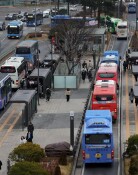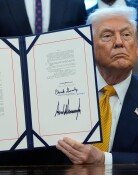[Op-Ed] Right to Investigate Financial Institutions
[Op-Ed] Right to Investigate Financial Institutions
Posted April. 23, 2009 09:23,
A social dispute over a revision to the Bank of Korea Act helped trigger the financial crisis in Korea in 1997. Even as the domestic financial market tanked in the wake of the Asian financial crisis that originated in Thailand, the bank and the Finance and Economy Ministry stepped up lobbying to secure their own interests rather than cooperate to overcome the crisis. They even meddled in political ploys ahead of the 1998 presidential election.
The National Assembly shelved again Nov. 18 that year the deliberation of 13 financial reform bills, including one to the Bank of Korea Act which had been pending for as long as three months. Failure to approve the bills, which foreign investors deemed as the barometer of Seouls will for reform, dampened Koreas recovery prospects through self-rescue efforts. The government decided to resort to the International Monetary Fund only three days later.
The financial reform bills were approved by the National Assembly Dec. 29 that year soon after the presidential election. The bills said that to raise the Bank of Koreas independence in monetary policy, the bank governor will chair the Monetary Policy Committee instead of the finance minister while granting the newly established Financial Supervisory Service all rights to probe and supervise financial institutions. The latter authority had been scattered among supervisory boards for banks, stock brokerages and insurance companies. The central bank thus secured the cause of enhanced independence but saw its influence over financial institutions significantly wane, as the bank supervisory board under its umbrella was spun off.
The economy and finance subcommittee of the National Assemblys Strategy and Finance Committee approved Tuesday a revision bill to the Bank of Korea Act on granting the bank limited rights to probe financial institutions. Under the oversight of the committee, the bank is welcoming the move. The committee and the Bank of Korea say the bank needs the right to probe financial companies to ensure market stability. The bank has a point in its reasoning. On the other hand, the parliamentary committee on national policy, which oversees the Financial Supervisory Service and the financial industry strongly oppose the move, citing increased burden on financial institutions resulting from overlapping probes.
Lying behind both sides argument is their struggle to secure their respective interests. The Bank of Korea and the finance committee seek to recover their influence over financial institutions. In contrast, the Financial Supervisory Service and the policy committee are wary over distribution of their monopolistic power over the financial industry. The views of lawmakers seem to depend on which committee they belong rather than which party. Lawmakers should help stabilize the financial market but minimize damage from overlapping oversight.







